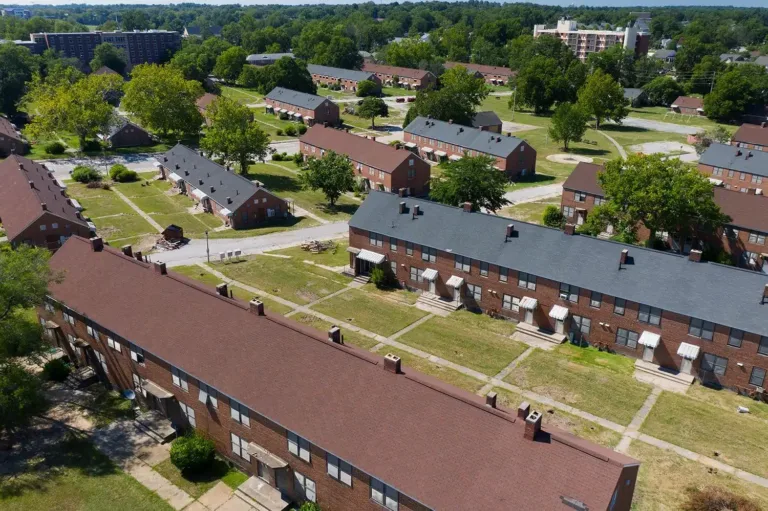A Richland County judge has denied the request of two former tenants of Allen Benedict Court to certify a lawsuit as a class action, according to Proffitt & Cox law firm which represents the two tenants. The ruling means that former tenants must file individual claims against Columbia Housing Authority if they wish to seek money damages resulting from the mass evacuation of the apartment complex in January 2019.
“We filed the lawsuit shortly after the mass evacuation. We asked the Court to allow the two former tenants, Tammy L. Basinger and Khaylis C. Scott, to represent all former tenants of Allen Benedict Court on a class-wide basis,” said David Proffitt, an attorney with Proffitt & Cox law firm in Columbia. “We believe that the common legal issues regarding the liability of Columbia Housing Authority for causing the evacuation by its failure to properly maintain the complex, along with the fact that former tenants suffered many of the same types of damage, makes this an excellent case for resolution on a class-wide basis.”
“Given the Court’s ruling denying a class action, all of the former tenants and residents who were summarily forced to leave Allen Benedict Court have a legal right to bring individual claims against Columbia Housing Authority,” Proffitt said. The former tenants are invited to contact Proffitt & Cox to discuss their legal rights.
The persons who are eligible for representation are all tenants of Allen Benedict Court and their household members, including minor children, as shown in each tenant’s written lease as of January 17, 2019.
The now-demolished Allen Benedict Court had 244 apartments and an estimated 400 people lived there.
“The lives of all these people were turned upside down in a single day. They were forced to immediately leave their apartments – many of them elderly or disabled, many of them with children – and move into small hotel rooms for months on end. It was a terrible, chaotic time for all of them,” Proffitt said.
The disruption of tenants’ daily lives and activities resulting from the mass evacuation included:
- Being removed from their homes without notice;
- Living in a small hotel room, often with minor children, instead of a two-story apartment with one to three bedrooms;
- Increased food costs from being unable to buy groceries and prepare meals;
- Spoiled and lost food and groceries left in apartment refrigerators and freezers;
- The effort and time involved in locating a suitable replacement home, visiting it, and awaiting CHA’s inspection and approval under the Section 8 voucher program;
- Expenses related to moving clothing, furniture, household items, and other personal belongings to a new residence;
- Loss of space for children and adults to get outside, walk and play while confined to hotels;
- Disruption of children’s school life and transportation, affecting their ability to study, learn and grow in a safe, stable environment;
- Disruption of child care arrangements;
- Disruption of availability of medical care and transportation to medical providers;
- Disruption of all normal living routines, including home, work, school, medical care, and daily life in general; and
- The cumulative impact emotionally of all the above challenges, including aggravation, frustration, physical anxiety, and stress related to all of the above events and issues.
“In addition, many of the tenants faced higher rental expenses when they moved into other apartments or Section 8 housing,” Proffitt said. The public housing program commonly known as Section 8 provides federally funded vouchers to tenants to rent privately owned residences.
City of Columbia fire and building officials ordered the evacuation of the entire apartment complex on January 17-18, 2019, after the deaths of two tenants from carbon monoxide poisoning and inspection of numerous apartments with safety concerns throughout the complex.
An investigation and extensive discovery revealed that the two tenants’ deaths were caused by a malfunctioning furnace that had not been properly maintained for many years. Plaintiffs in the lawsuit allege that CHA had neglected necessary maintenance and repairs at Allen Benedict Court for many years, despite repeated reports of natural gas leaks and other safety concerns by tenants.
A former tenant, age 67, still vividly recalls being kicked out of her apartment. “How would you feel after being told you have 15 minutes to get out of the home you stayed in for years?” she asked. “That was the worst time of my life.”
“When we were told to evacuate, who would have ever known how it will change your life,” said a former tenant, age 62. “I had to leave all of my belongings. I had to go live with my daughter until was able to find me another place I can call home. This was a very difficult time and I was feeling like the things that were left behind were not important to them (Columbia Housing Authority). However, they were very important to me,” she said.
Another former tenant, a mother with two children then 5 and 9 years old, recalled that her family stayed in three hotels before finding a new apartment. “We did not have a stove at the hotels we were at, so I was buying food every day. . . . We were not very close to the bus while being in the second hotel and it was a hassle walking,” said the mother, age 32. Her sons were sometimes late for school due to lack of transportation. “My depression was up due to the evacuation and being in a hotel,” she said. “My youngest son suffered emotionally because he wanted to go home every day, and he was beginning to display bad behavior in school during that time.”
“My daughter never went to school on time,” another former tenant and mother, age 34, recalled. “We couldn’t get a ride (from the hotel) to the grocery stores or other places. My daughter was bored and lonely. We were so stressed out and depressed,” she said.
A former tenant, age 36, who was eight months pregnant at the time of the evacuation recalled the difficulties. With her teenage children in the small hotel room, there was no privacy or personal space for anyone. “Transportation was very difficult with two kids and no car at the time. It was very difficult getting my kids to and from school every day. I had anxiety attacks from having to sleep in a hotel where I felt like I was trapped. I had no other choice to put up with whatever came my way because I had no money to move.”
Ms. Basinger and Ms. Scott filed their Summons and Complaint on January 23, 2019.
Plaintiffs filed a Motion for Class Certification and Memorandum in Support, including the parties’ Joint Stipulation of Facts, on June 11, 2021. Plaintiffs asked the Court for permission to allow them to represent all former tenants and household members of Allen Benedict Court as shown in each tenant’s written lease as of January 17, 2019, in a single class action lawsuit.
The Honorable Jocelyn Newman heard the parties’ arguments on the class action motion at a hearing on February 8, 2022. Judge Newman denied Plaintiffs’ Motion for Class Certification in an Order filed March 22, 2023.
The above-described pleadings related to the case are available at https://drive.google.com/drive/folders/1_kZ02E0yUrEEsHI_xg98Mj_UyubGtuGn
CONTACT: David Proffitt
(803) 834-7097 office
dproffitt@proffittcox.com





